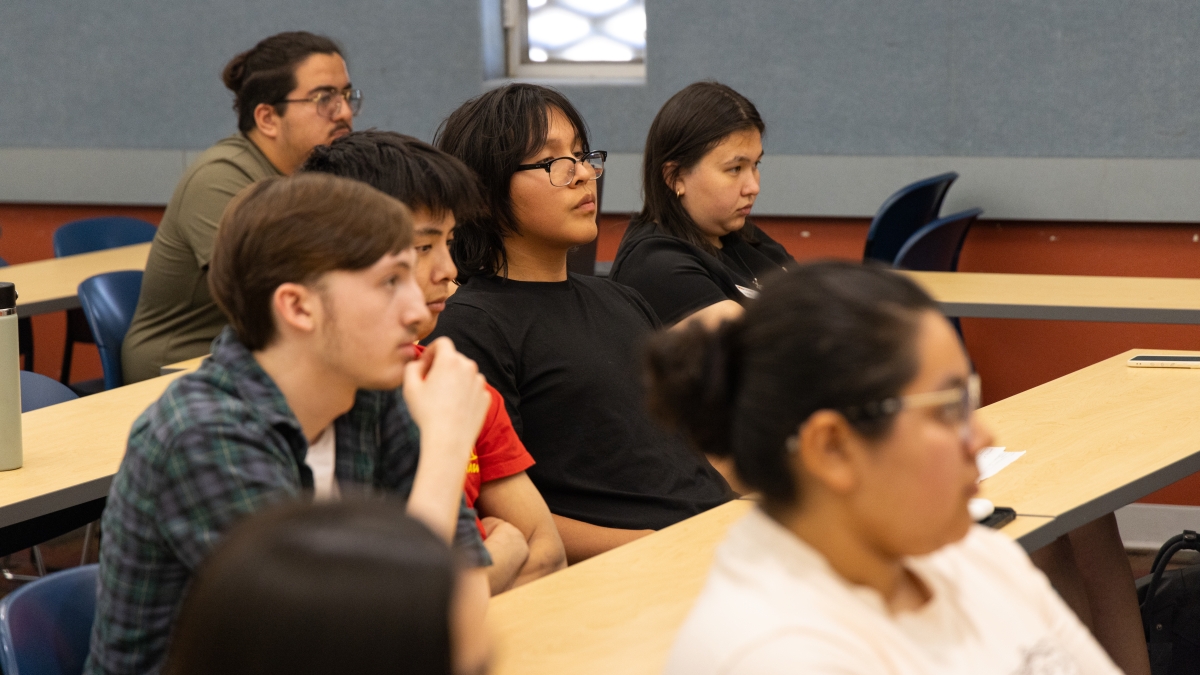
- Details
- By Megan Neely
Arizona State University’s American Indian Studies program will be hosting the annual American Indian Studies Association Conference in Tempe from Feb. 5-7. The conference will feature a graduate student pre-conference networking event and a number of speaking and panel engagements.
The conference seeks to celebrate generations of scholars, educators, activists, researchers, practitioners and students who dedicate themselves to protecting and advancing Indigenous sovereignty. Surrounding this year’s theme, “Imagining Sovereign Indigenous Futures: Drawing Wisdom from the Past for a Self-Determined Future,” discussions will engage participants in theories, methodologies, pedagogies and practices of the discipline. The conference alternates campuses in partnership with the University of New Mexico’s Native American Studies program every other year.
Arizona is home to 22 federally recognized Indigenous Nations and ASU resides on the ancestral lands of Indigenous peoples, including the Akimel O’odham and Pee Posh. As of fall 2023, 3,823 American Indian/Alaska Native students were enrolled in the university.
“This is a chance to bring everybody together from all these different places — geographically and culturally — to celebrate Indigeneity and the great work that people in AIS do,” said Michelle L. Hale, a teaching professor in the American Indian Studies program and the president of the American Indian Studies Association.
This year’s panels include themes of truth-telling about boarding schools, disrupting Western narratives about Indigenous people, doing the work of community engagement and protecting tribal land. Navajo scholar Farina King, a leader in the truth-telling effort, will describe partnerships in Oklahoma that highlight the complex experiences of boarding school survivors. Kishan Lara-Cooper (Yurok, Hupa, Karuk) and Walter Lara Sr. (Yurok) will discuss their book, “Ka'm-t'em: A Journey Toward Healing”, a work that facilitates testimonial justice.
The “Thinking Out Loud” session will feature presenters to share their ideas for future research, discuss current research in progress or simply talk through their ideas with interested colleagues. This year’s presenters will cover topics that include Indigenous visual sovereignty, water narratives, service learning, tourism and entrepreneurship.
Hale noticed the uptick in Indigenous language submissions, with discourse ranging from language recovery and revitalization to education and storytelling.
“We hear about Indigenous languages that disappear because they're not being taught or learned by new generations,” said Hale. “People are finding new ways to get community members and youth interested in speaking their language. These efforts protect the language so it doesn't disappear.”
The conference’s keynote speaker is Laura Harjo, the current chair of the University of Oklahoma’s Department of Native American Studies. Harjo (Muscogee Creek) is a geographer and the cofounder of the Indigenous Mapping Network. Her main areas of research focus on inspiring complexity to Indigenous space, missing and murdered Indigenous women and community-based knowledge production. She is also the author of “Spiral to the Stars: Mvskoke Tools and Futurity.” which explores Mvskoke epistemologies and Indigenous feminisms.
“Laura's work speaks to our theme. It highlights the importance of Indigenous community knowledge, history and lived experience as we think about and imagine our futures.”
Registration for the conference and graduate student networking event is currently open and is free for undergraduate students and elders. The pre-conference event on Wednesday, Feb. 5 is free for all participants. All are welcome to attend.
Help us defend tribal sovereignty.
At Native News Online, our mission is rooted in telling the stories that strengthen sovereignty and uplift Indigenous voices — not just at year’s end, but every single day.
Because of your generosity last year, we were able to keep our reporters on the ground in tribal communities, at national gatherings and in the halls of Congress — covering the issues that matter most to Indian Country: sovereignty, culture, education, health and economic opportunity.
That support sustained us through a tough year in 2025. Now, as we look to the year ahead, we need your help right now to ensure warrior journalism remains strong — reporting that defends tribal sovereignty, amplifies Native truth, and holds power accountable.
 The stakes couldn't be higher. Your support keeps Native voices heard, Native stories told and Native sovereignty defended.
The stakes couldn't be higher. Your support keeps Native voices heard, Native stories told and Native sovereignty defended.
Stand with Warrior Journalism today.
Levi Rickert (Potawatomi), Editor & Publisher

